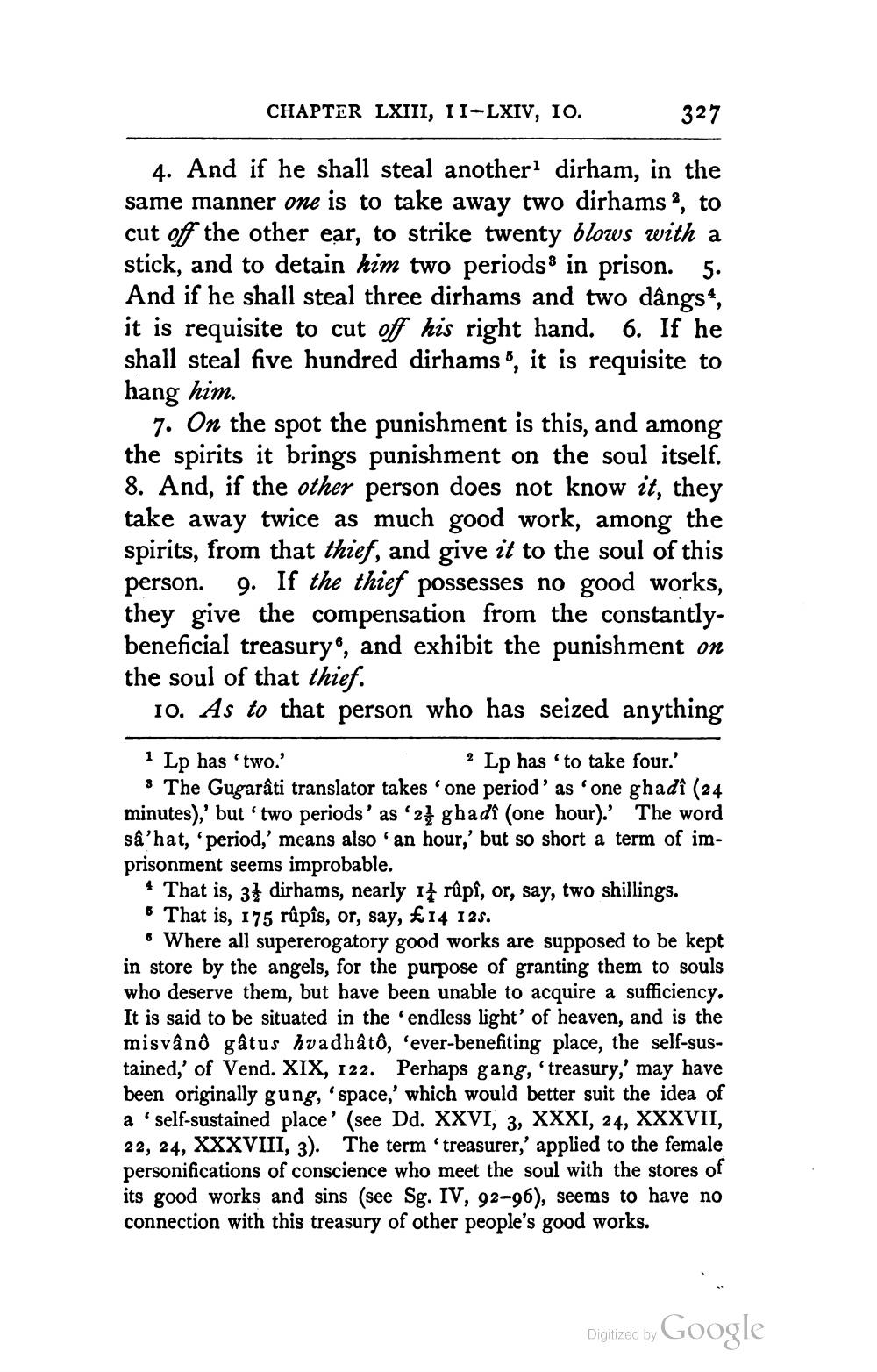________________
CHAPTER LXIII, 11-LXIV, 10.
327
4. And if he shall steal another dirham, in the same manner one is to take away two dirhams", to cut off the other ear, to strike twenty blows with a stick, and to detain him two periods: in prison. 5. And if he shall steal three dirhams and two dângs, it is requisite to cut off his right hand. 6. If he shall steal five hundred dirhams 5, it is requisite to hang him.
7. On the spot the punishment is this, and among the spirits it brings punishment on the soul itself. 8. And, if the other person does not know it, they take away twice as much good work, among the spirits, from that thief, and give it to the soul of this person. 9. If the thief possesses no good works, they give the compensation from the constantlybeneficial treasurye, and exhibit the punishment on the soul of that thief.
10. As to that person who has seized anything
1 Lp has 'two.'
? Lp has 'to take four.' & The Gugaráti translator takes 'one period as one ghadî (24 minutes),' but 'two periods' as 21 ghadi (one hour).' The word sâ'hat, 'period,' means also an hour,' but so short a term of imprisonment seems improbable.
4 That is, 31 dirhams, nearly it rûpi, or, say, two shillings. 6 That is, 175 rûpîs, or, say, £ 14 12S.
o Where all supererogatory good works are supposed to be kept in store by the angels, for the purpose of granting them to souls who deserve them, but have been unable to acquire a sufficiency. It is said to be situated in the endless light' of heaven, and is the misvânô gâtus hvadhâtô, 'ever-benefiting place, the self-sustained,' of Vend. XIX, 122. Perhaps gang, 'treasury,' may have been originally gung, space,' which would better suit the idea of a 'self-sustained place' (see Dd. XXVI, 3, XXXI, 24, XXXVII, 22, 24, XXXVIII, 3). The term 'treasurer,' applied to the female personifications of conscience who meet the soul with the stores of its good works and sins (see Sg. IV, 92-96), seems to have no connection with this treasury of other people's good works.
Digitized by Google




